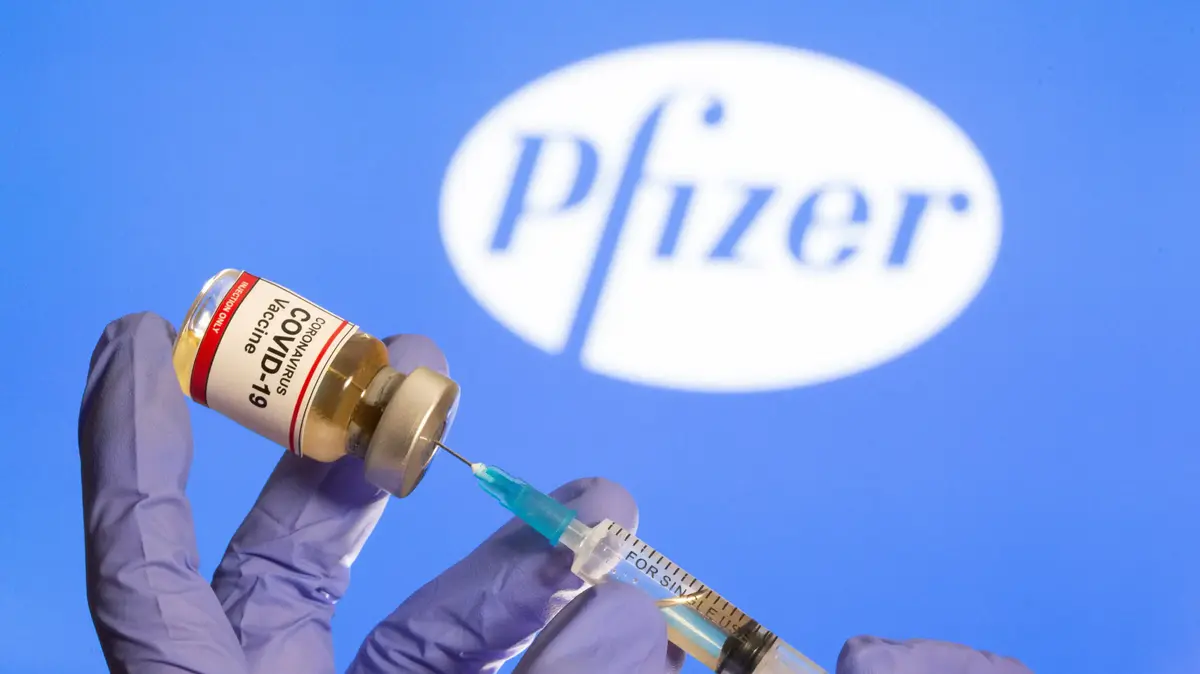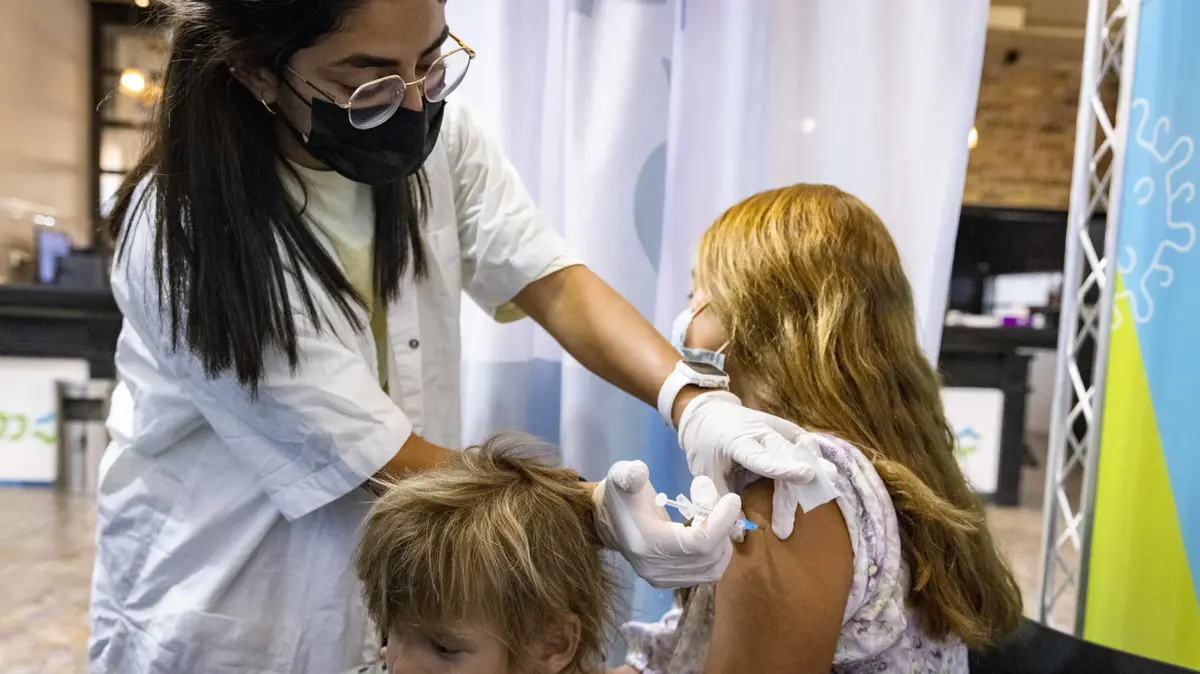Enlarge image
Toledo in Brazil: test laboratory for the world
Photo:
Toledo Prefeitura
The city of Toledo in southwestern Brazil is becoming an experimental laboratory for the world: The aim is to investigate what happens when the entire population is immunized.
The approximately one-year experiment, which the pharmaceutical company Pfizer hopes to use to gain new insights into the effectiveness and duration of vaccine protection for its vaccines, will begin at the beginning of November - under real living conditions.
Toledo has around 143,000 inhabitants.
There is hardly any vaccine skepticism here.
Around 99 percent of people over the age of twelve in the city have already had their first vaccination, most of them from Biontech / Pfizer.
With more than 600,000 dead, Brazil is one of the countries hardest hit by the pandemic.
President Jair Bolsonaro played down the virus from the start and railed against vaccinations.
Most recently, Brazilian senators accused him of crimes against humanity: for months, the president refused to order vaccines - even though they had been offered to him by the manufacturers.
The Toledo experiment is not the first mass study of its kind in Brazil.
In the city of Serrana, all adults were immunized with the vaccine from the Chinese manufacturer Sinovac in winter and spring.
The experiment was a great success: while the pandemic raged in the rest of Brazil, the number of infections, serious illnesses and corona deaths fell sharply in Serrana.
Gabriela Kucharski, Health Secretary for the City of Toledo, is now hoping for even better results thanks to the Biontech / Pfizer vaccination.
SPIEGEL:
Ms. Kucharski, your city was selected for a vaccine study by the pharmaceutical company Pfizer.
How did that happen?
Gabriela Kucharski:
Pfizer was looking for a city in Brazil that can be virtually 100 percent vaccinated.
There were several applicants.
You have chosen Toledo.
We're the only city in a developing country that has Pfizer doing this type of research.
That is certainly also due to the way we dealt with the pandemic.
We monitored and documented the virus from the start.
We knew about the first case with us and about the further infection process.
In cooperation with the state university here, we have succeeded in this epidemiological control and transparency.
SPIEGEL:
Is that why the pandemic hit Toledo less severely?
Kucharski:
At first we had fewer infections and fewer deaths, but that changed with the P1 variant in February, which also hit our city hard.
Overall, however, we still got off better than the rest of the country.
SPIEGEL:
Brazil has now made a kind of U-turn: It has caught up a lot in vaccination progress.
In addition to the vaccines from Sinovac and AstraZeneca, those from Biontech / Pfizer will soon also be produced in the country.
How many residents of your city have already been vaccinated?
Kucharski:
We have already vaccinated around 99 percent of people over the age of twelve once and more than 60 percent twice.
Medical staff and risk groups are already receiving booster shots from Pfizer.
In the beginning we also inoculated the vaccines from Sinovac, AstraZeneca and Johnson & Johnson.
We have now switched entirely to Biontech / Pfizer, which around half of the people have received.
SPIEGEL:
In Europe, manufacturers would have difficulties achieving such a vaccination quota.
How do you explain that despite the political polarization with regard to the coronavirus and vaccines, there is hardly any vaccine skepticism among you?
Kucharski:
People did their research and it is clear to them that the way out of the pandemic is vaccination.
Practice also quickly showed how effective it is.
As the campaign has progressed, the number of serious cases has decreased significantly.
That then convinced even more people.
Since we were selected for the study, almost everyone wants to be vaccinated.
The Biontech / Pfizer vaccination has a particularly high level of credibility.
SPIEGEL:
There have already been numerous studies on the effectiveness and safety of the vaccine.
What do you hope for from this type of research?
Kucharski:
What we're doing here goes beyond clinical studies.
The aim is to find out how the coronavirus behaves in real life - in a population that is 100 percent vaccinated.
Our city should be watched for a whole year.
People will go to work normally, family get-togethers and major events will take place - even if distance rules and mask requirements usually still apply.
Will new virus variants develop that breach vaccine protection?
Will there be serious illnesses?
What about the duration of vaccine protection?
These are questions that we want to clarify.
SPIEGEL:
Do you already have some initial findings?
Kucharski:
What we can already say: Due to the high vaccination rate, the number of infections and corona deaths have decreased massively.
At the height of the pandemic, we had around 150 new infections a day.
Now we're at seven to ten.
There are also breakthroughs in vaccination, but so far we have hardly observed any severe courses.
This contribution is part of the Global Society project
Expand areaWhat is the Global Society project?
Reporters from
Asia, Africa, Latin America and Europe
report under the title “Global Society”
- on injustices in a globalized world, socio-political challenges and sustainable development.
The reports, analyzes, photo series, videos and podcasts appear in the international section of SPIEGEL.
The project is long-term and will be supported for three years by the Bill & Melinda Gates Foundation (BMGF).
A detailed FAQ with questions and answers about the project can be found here.
AreaWhat does the funding look like in concrete terms?
The Bill & Melinda Gates Foundation (BMGF) is supporting the project for three years with a total of around 2.3 million euros.
Are the journalistic content independent of the foundation?
Yes.
The editorial content is created without the influence of the Gates Foundation.
Do other media have similar projects?
Yes.
Big European media like "The Guardian" and "El País" have set up similar sections on their news sites with "Global Development" and "Planeta Futuro" with the support of the Gates Foundation.
Have there already been similar projects at SPIEGEL?
In the past few years, SPIEGEL has already implemented two projects with the European Journalism Center (EJC) and the support of the Bill & Melinda Gates Foundation: the “Expedition ÜberMorgen” on global sustainability goals and the journalistic refugee project “The New Arrivals” as part of this several award-winning multimedia reports on the topics of migration and flight have been produced.
Where can I find all publications on global society?
The pieces can be found at SPIEGEL on the topic Global Society.







